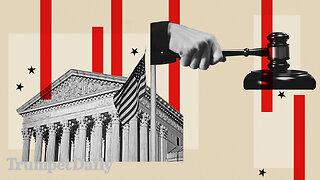Premium Only Content

Second Caliph of Abbasid Caliphate Abu Jafar Abd Allah ibn Muhammad al-Mansur
@islamichistory813 #AbbasidCaliphate #secondcaliph #abujafarabdallahibnmuhammdalmasur #Education
Second Caliph of Abbasid Caliphate Abu Jafar Abd Allah ibn Muhammad al-Mansur
Asslamoalaikum sisters brothers friends and elders, Learn about the Second Caliph of the Abbasid Caliphate, Abu Jafar Abd Allah ibn Muhammad al-Mansur, in this educational and informative video. Discover the history and significance of his reign. Share this video to spread knowledge about this pivotal figure in Islamic history.
Abu Jafar Abd Allah ibn Muhammad al-Mansur usually known simply as by his laqab al-Man??r was the second Abbasid caliph, reigning from 136 AH to 158 AH (754 CE – 775 CE) succeeding his brother al-Saffah (r.?750–754). He is known for founding the 'Round City' of Madinat al-Salam, which was to become the core of imperial Baghdad.
Modern historians regard al-Mansur as the real founder of the Abbasid Caliphate, one of the largest polities in world history, for his role in stabilizing and institutionalizing the dynasty
According to al-Suyuti's History of the Caliphs, al-Mansur lived 95 AH – 158 AH (714 CE – 6 October 775 CE).[2] Al-Mansur was born at the home of the Abbasid family in Humeima (modern-day Jordan) after their emigration from the Hejaz in 714 (95 AH).[3] His mother was Sallamah, a slave woman.[4] Al-Mansur was a brother of al-Saffah.[5] Both were named Abd Allah, and to distinguish between them, al-Saffah was referred to by his kunya Abu al-Abbas.[6]
Al-Mansur was a great great-grandson of Abbas ibn Abd al-Muttalib, an uncle of the Islamic prophet, Muhammad.[7] Al-Mansur's brother al-Saffah began asserting his claim to become caliph in the 740s and became particularly active in Khorasan, an area where non-Arab Muslims lived. After the death of the Umayyad caliph Hisham ibn Abd al-Malik in 743 a period of instability followed. Al-Saffah led the Abbasid Revolution in 747 and his claim to power was supported throughout Iraq by Muslims. He became the first caliph of the Abbasid caliphate in 750 after defeating his rivals.[5]
Shortly before the overthrow of the Umayyads by an army of rebels from Khorasan that were influenced by propaganda spread by the Abbasids, the last Umayyad Caliph Marwan II, arrested the head of the Abbasid family, Al Mansur's other brother Ibrahim. Al-Mansur fled with the rest of his family to Kufa where some of the Khorasanian rebel leaders gave their allegiance to his brother al-Saffah. Ibrahim died in captivity and al-Saffah became the first Abbasid Caliph. During his brother's reign, al-Mansur led an army to Mesopotamia where he received a submission from the governor after informing him of the last Umayyad Caliph's death. The last Umayyad governor had taken refuge in Iraq in a garrison town. He was promised a safe-conduct by al-Mansur and the Caliph al-Saffah, but after surrendering the town, he was executed with a number of his followers.[3]
According to The Meadows of Gold, a history book in Arabic written around 947 CE, al-Mansur's dislike of the Umayyad dynasty is well documented and he has been reported saying:
Gold dinar of al-Mansur
"The Umayyads held the government which had been given to them with a firm hand, protecting, preserving and guarding the gift granted them by God. But then their power passed to their effeminate sons, whose only ambition was the satisfaction of their desires and who chased after pleasures forbidden by Almighty God...Then God stripped them of their power, covered them with shame and deprived them of their worldly goods"
Al-Saffah died after a short five-year reign and al-Mansur took on the responsibility of establishing the Abbasid caliphate[3] by holding on to power for nearly 22 years, from Dhu al-Hijjah 136 AH until Dhu al-Hijjah 158 AH (754 – 775).[8][10] Al-Mansur was proclaimed Caliph on his way to Mecca in the year 753 (136 AH) and was inaugurated the following year.[11] Abu Ja'far Abdallah ibn Muhammad took the name al-Mansur ("the victorious") and agreed to make his nephew Isa ibn Musa his successor to the Abbasid caliphate. This agreement was supposed to resolve rivalries in the Abbasid family, but al-Mansur's right to accession was particularly challenged by his uncle Abdullah ibn Ali. Once in power as caliph, al-Mansur had his uncle imprisoned in 754 and killed in 764.
Fearing the increasing power of the Abbasid general Abu Muslim, who gained popularity among the people, al-Mansur carefully planned his assassination. Abu Muslim was conversing with the Caliph when, at an appointed signal, four (some sources say five) of his guards rushed in and fatally wounded the general.[13] John Aikin, in his work General Biography, narrates that Mansur, not content with the assassination, committed "outrages on the dead body, and kept it several days in order to glut his eyes with the spectacle."[11]
The Execution of Abu Muslim caused uproars throughout the province of Khorasan. In 755 Sunpadh, an Iranian nobleman from the House of Karen, led a revolt against al-Mansur, taking the cities of Nishapur, Qumis, and Ray. In Ray, he seized the treasuries of Abu Muslim. He gained many supporters from Jibal and Tabaristan, including the Dabuyid ruler, Khurshid, who was paid with money from the treasures.[13]:?201? Al-Mansur ordered a force of 10,000 under Abbasid commander Jahwar ibn Marrar al-lijli to march without delay to Khorasan to fight the rebellion. Sunpadh was defeated and Khorasan reclaimed by the Abbasids.[13]
Al-Mansur sent an official to take inventory of the spoils collected from the battle as a precautionary measure against acquisition by his army. Angered by al-Mansur's avarice, general Jahwar gained support from his troops for his plans to split the treasures evenly, and revolted against the caliph. This raised alarm in the caliph's court and al-Mansur ordered Mohammad ibn Ashar to march towards Khorasan. Jahwar, knowing his troops were at a disadvantage, retired to Isfahan and fortified in preparation. Mohammad's army pressed the rebel forces and Jahwar fled to Azerbaijan. Jahwar's forces were defeated, but he escaped Mohammad's pursuit. This campaign lasted from 756 to 762 CE (138 to 144 AH).[13] In 759, al-Mansur sent an army under his generals Abu al-Kha??b Marzuq and Khazim ibn Khuzayma to Tabaristan to punish Khurshid for his support to Sunpadh. Khurshid was defeated and Abu al-Khasib was appointed as the governor of the region.
After relieving former vizier ibn Attiya al-Bahili, al-Mansur transferred his duties to Abu Ayyub al-Muriyani from Khuzestan. Abu Ayyub was previously a secretary to Sulayman ibn Habib ibn al-Muhallab, who in the past, had condemned al-Mansur to be whipped and flogged to pieces. Abu Ayyub had rescued al-Mansur from this punishment. Nevertheless, after appointing him as vizier, al-Mansur suspected Abu Ayyub of various crimes, including extortion and treachery, which led to the latter's assassination. The vacant secretary role was granted to Aban ibn Sadaqa until the death of the caliph al-Mansur
Al-Mansur's first wife was Arwa known as Umm Musa, whose lineage went back to the kings of Himyar.[45] Her father was Mansur al-Himyari. She had a brother named Yazid.[46] She had two sons, Muhammad (future Caliph al-Mahdi) and Ja'far.[45] She died in 764.[45] Another wife was Hammadah. Her father was Isa,[47] one of al-Mansur's uncles.[48] She died during al-Mansur's caliphate.[47] Another wife was Fatimah. Her father was Muhammad, one of the descendants of Talhah ibn Ubaydullah. She had three sons, Sulayman, Isa, and Ya'qub.[46] One of his concubines was a Kurdish woman. She was the mother of al-Mansur's son Ja'far 'Ibn al-Kurdiyyah' (Nasab translating to "Son of the Kurdish woman"). Unlike his other adult half-brothers, little is known of Ja'far and he likely was not involved in politics or had marriage or issue. However, his death is recorded at 802 AD by palace records suggesting he lived into adulthood and continued to live at court rather than having been banished or dying before adulthood.[46] Another concubine was Qali-al Farrashah. She was a Greek, and was the mother of al-Mansur's son Salih al-Miskin.[46] Another concubine was Umm al-Qasim, whose son al-Qasim died at aged ten.[46] Al-Masnur's only daughter Aliyah was born to an Umayyad woman. She married Ishaq ibn Sulayman.[46]
Death
Al-Mas'udi writes that Mansur died on Saturday 6, Dhu al-Hijja 158 AH/775 CE. There are varying accounts of the location and circumstances of al-Mansur's death. One account narrates that al-Mansur was on a pilgrimage to Mecca and had nearly reached, when death overtook him at a location called the Garden of the Bani Amir on the high road to Iraq at the age of sixty-three. According to this narration, he was buried in Mecca with his face uncovered because he was wearing the ihram clothing. 100 graves were dug around Mecca with the intention to thwart any attempt to find and violate his bones.[49]
A different narration from Fadl ibn Rabi'ah, who claimed to have been with Mansur at his time of death, states that he died at al-Batha' near the Well of Maimun in which he would have been buried at al-Hajun at sixty-five years of age. In this narration, Mansur was sitting in a domed room hallucinating about ill-omen writings on the wall. When al-Rabiah replied "I see nothing written on the wall. Its surface is clean and white," al-Mansur replied, "my soul is warned that she may prepare for her near departure." After reaching the Well of Maimun, he reportedly said "God be praised" and succumbed to death that very day.
When al-Mansur died, the caliphate's treasury contained 600,000,000 dirhams and fourteen million dinars.[8]:?33? On his deathbed, Mansur said, “We have sacrificed the life to come for a mere dream
We pray to Allah Almighty to give us permission to read Quran wa Hadith and also permit us to read, understand our Islamic history. Ameen Allah Hafiz
=============================================
-
 2:07:07
2:07:07
Robert Gouveia
8 hours agoFBI Files Coverup! Bondi FURIOUS; SCOTUS Stops Judge; Special Counsel; FBI Does
84.2K78 -
 56:15
56:15
Candace Show Podcast
8 hours agoBREAKING: My FIRST Prison Phone Call With Harvey Weinstein | Candace Ep 153
144K108 -
 1:56:39
1:56:39
Flyover Conservatives
7 hours agoROBIN D. BULLOCK | Prophetic Warning: 2030 Is Up for Grabs – If We Don’t Act Now, Disaster Awaits! | FOC SHOW
32.8K8 -
 2:13:11
2:13:11
megimu32
5 hours agoON THE SUBJECT: The Epstein List & Disney Channel Original Movies Nostalgia!!
28.3K4 -
 9:06
9:06
Colion Noir
14 hours agoKid With Gun Shoots & Kills 2 Armed Robbers During Home Invasion
45.1K13 -
 54:28
54:28
LFA TV
1 day agoUnjust Man | TRUMPET DAILY 2.27.25 7PM
49.9K5 -
 1:36:39
1:36:39
Redacted News
8 hours agoBOMBSHELL EPSTEIN SH*T SHOW JUST DROPPED ON WASHINGTON, WHAT IS THIS? | Redacted w Clayton Morris
171K298 -
 2:03:31
2:03:31
Revenge of the Cis
10 hours agoEpisode 1453: Fat & Fit
62.5K9 -
 2:38:12
2:38:12
The White House
11 hours agoPresident Trump Holds a Press Conference with Prime Minister Keir Starmer of the United Kingdom
205K61 -
 1:01:04
1:01:04
In The Litter Box w/ Jewels & Catturd
1 day agoDrain the Swamp! | In the Litter Box w/ Jewels & Catturd – Ep. 751 – 2/27/2025
102K44